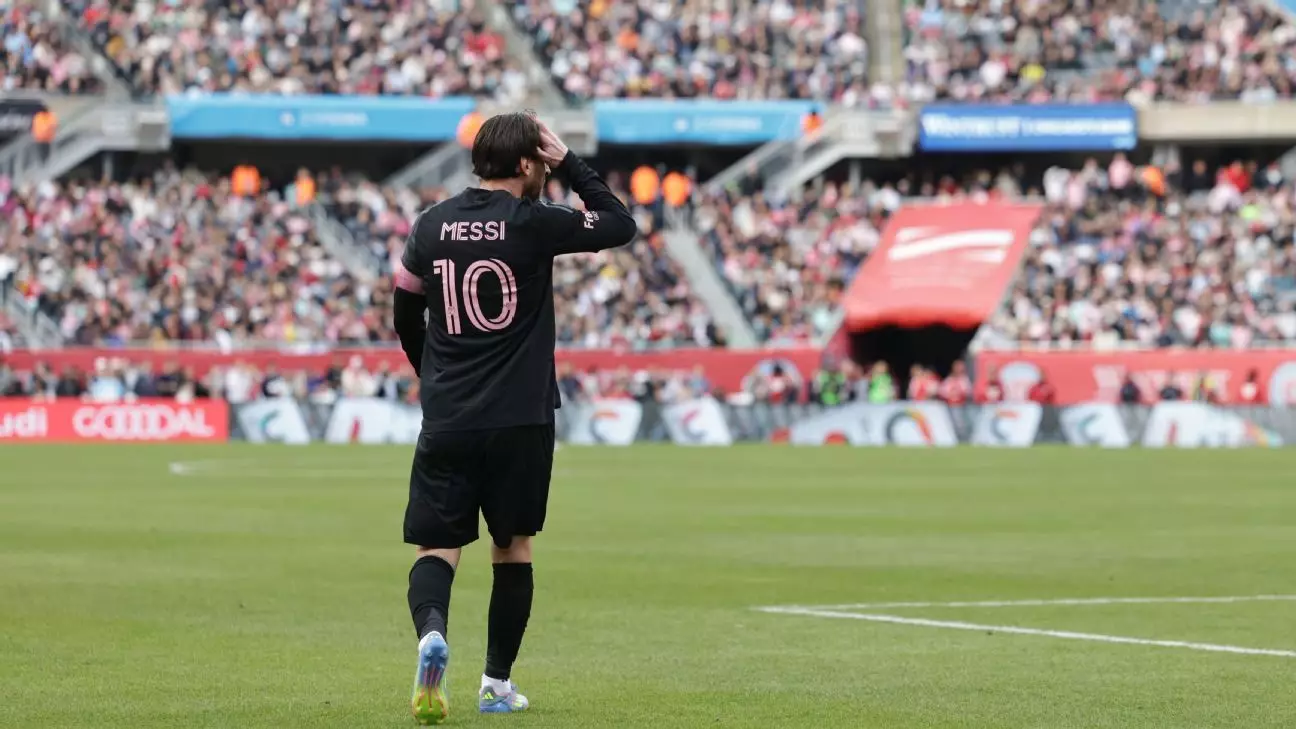Lionel Messi’s arrival at Inter Miami has undeniably altered the landscape of Major League Soccer (MLS) in ways that extend beyond mere statistics. In a recent statement reflecting on Messi’s influence, Inter Miami coach Javier Mascherano pointed out that the Argentine superstar has wavered the perceptions surrounding the league since joining in 2023. His acknowledgment of Messi’s transformative power encapsulates a broader narrative: Messi has become a catalyst for MLS’s growth, engendering increased visibility and interest not only from fans but also from aspiring players across the globe. While the former Barcelona icon’s contributions are palpable, it is essential to delve into how these changes manifest off the field and what they imply for the future of soccer in the United States.
Attendance Records as a Barometer of Change
Messi’s immediate impact can be quantified by the staggering attendance records witnessed at various venues across the league. In a recent match against Chicago Fire, Soldier Field saw a record turnout of 62,358 fans—an unprecedented number for the venue, and a testament to the magnetic draw Messi possesses. This phenomenon is not isolated; similar scenarios have unfolded at other stadiums where Messi’s presence has propelled attendance figures into uncharted territories. Matches against clubs like the New England Revolution and Sporting Kansas City have seen respective record-breaking turnouts, compelling teams to relocate their fixtures to larger environments to accommodate growing demand. Such shifts underline not just the excitement surrounding Messi, but also the increasing mainstream appeal of soccer in the United States.
Challenges on the Horizon
Despite the excitement generated by Messi’s arrival, coach Mascherano was quick to emphasize that the journey is far from over for MLS. The very fact that increased attendance doesn’t guarantee enhanced on-field performance introduces an interesting dichotomy. In a tightly contested match against Chicago Fire that ended in a goalless draw, Inter Miami struggled to convert their opportunities despite exhibiting flashes of brilliance. The team managed only ten shots, with a mere three on target, highlighting a gap between popularity and performance. Mascherano attributed this difficulty to a congested schedule, an issue that many teams also face as they juggle domestic and international commitments.
Beneath the Surface: A Growing League
Beyond Messi’s allure and the excitement encapsulated in record-breaking attendance figures, there lies a more profound implication for the league itself. The United States has long been viewed as a developing soccer market, but with Messi at the helm in Miami, there’s an opportunity for the league to redefine its identity. Mascherano’s assertion that MLS must continue to “advance” is notable; it indicates a recognition that achieving higher levels of competition will require systemic changes. The investment in quality players and facilities, ultimately aimed at fortifying teams’ abilities to compete both domestically and internationally, must be prioritized—especially with Messi’s unique brand and playing style shining a spotlight on the league.
What Lies Ahead: Excitement & Expectations
As Inter Miami prepares to face off against Columbus Crew and continue its campaign in the Concacaf Champions Cup, expectations soar along with excitement. Today’s match against Columbus foreshadows both a test of resilience and a chance for the team to reclaim its footing in the league standings. Coach Mascherano’s commitment to maintaining a competitive ethos despite the challenges of fatigue underscores the spirit cultivated within the organization since Messi’s arrival. Supporters eagerly await to see how the team can leverage its past experiences into future successes, especially with a player of Messi’s caliber on their side.
The momentum generated by Messi is not merely a fleeting wave; it has the potential to shape the ethos of soccer in America, and Mescherano’s sentiments reflect a broader understanding that sustained growth will hinge upon maintaining competitiveness and refining the league’s approach. As Inter Miami navigates its path, it stands at the crossroads of opportunity and responsibility—both to uphold Messi’s legacy and to solidify MLS’s ascent on the global stage.


Leave a Reply